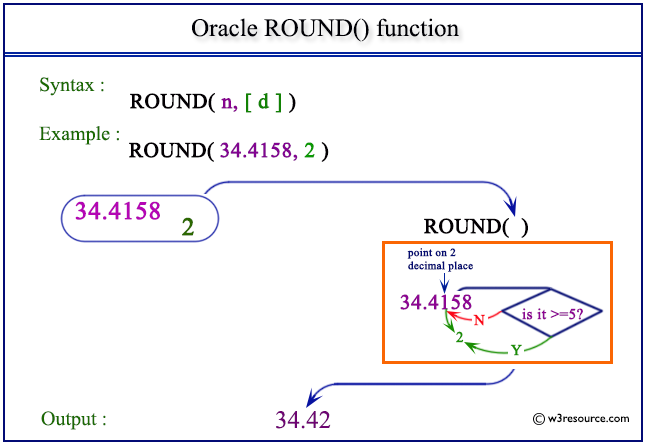As an s4 generic trunc has only one argument.
Floor vs trunc r.
For example we know that floor log x base 8 for x 8 is 1 but 0 has been seen on an r platform.
Ceil and floor functions are different in many respects.
Note that this is in line with the behavior of r s base round posixt function but does not follow the convention of the base base round function which rounds to.
Ceiling x rounds to the nearest integer that s larger than x this means ceiling 123 45 becomes 124 and ceiling 123 45 becomes 123.
Ceil vs floor functions.
The realities of computer arithmetic can cause unexpected results especially with floor and ceiling.
Trunc takes a single numeric argument x and returns a numeri.
Round date takes a date time object and time unit and rounds it to the nearest value of the specified time unit.
Trunc x rounds to the nearest integer in the direction of 0.
Round 1 3 1 round 1 33 1 1 3 round breaks ties towards the nearest even number.
As an s4 generic trunc has only one argument.
It is normally.
Round and signif are members of the math2 group generic.
Ceil short for ceiling and floor function are both mathematical functions.
Comparison of round ceiling floor trunc signif.
Floor function takes up the vector as an argument and rounds down all the values of that vector without decimal places so as no decimal values left floor function in r for vector floor c 1 234 2 342 4 562 5 671 12 345 14 567 output.
Example of floor function in r for a vector.
So trunc 123 65 becomes 123 and trunc 123 65 becomes 123.
For example we know that floor log x base 8 for x 8 is 1 but 0 has been seen on an r platform.
Floor ceil and trunc always return an integral value while round returns an integral value if called with one argument.
Figure 1 illustrates based on four different input values i e.
1 1 1 9 1 1 and 1 9 how the output of the different functions looks like.
The r programming language provides many different rounding functions which are all slightly different.
It is normally.
The realities of computer arithmetic can cause unexpected results especially with floor and ceiling.
This corrects the bias towards larger numbers when performing a large number of calculations.
Typing floor gives the following floor takes a single numeric argument x and returns a numeric vector containing the largest integers not greater than the corresponding elements of x.
Floor x rounds to the nearest integer that s smaller than x so floor 123 45 becomes 123 and floor 123 45 becomes 124.

